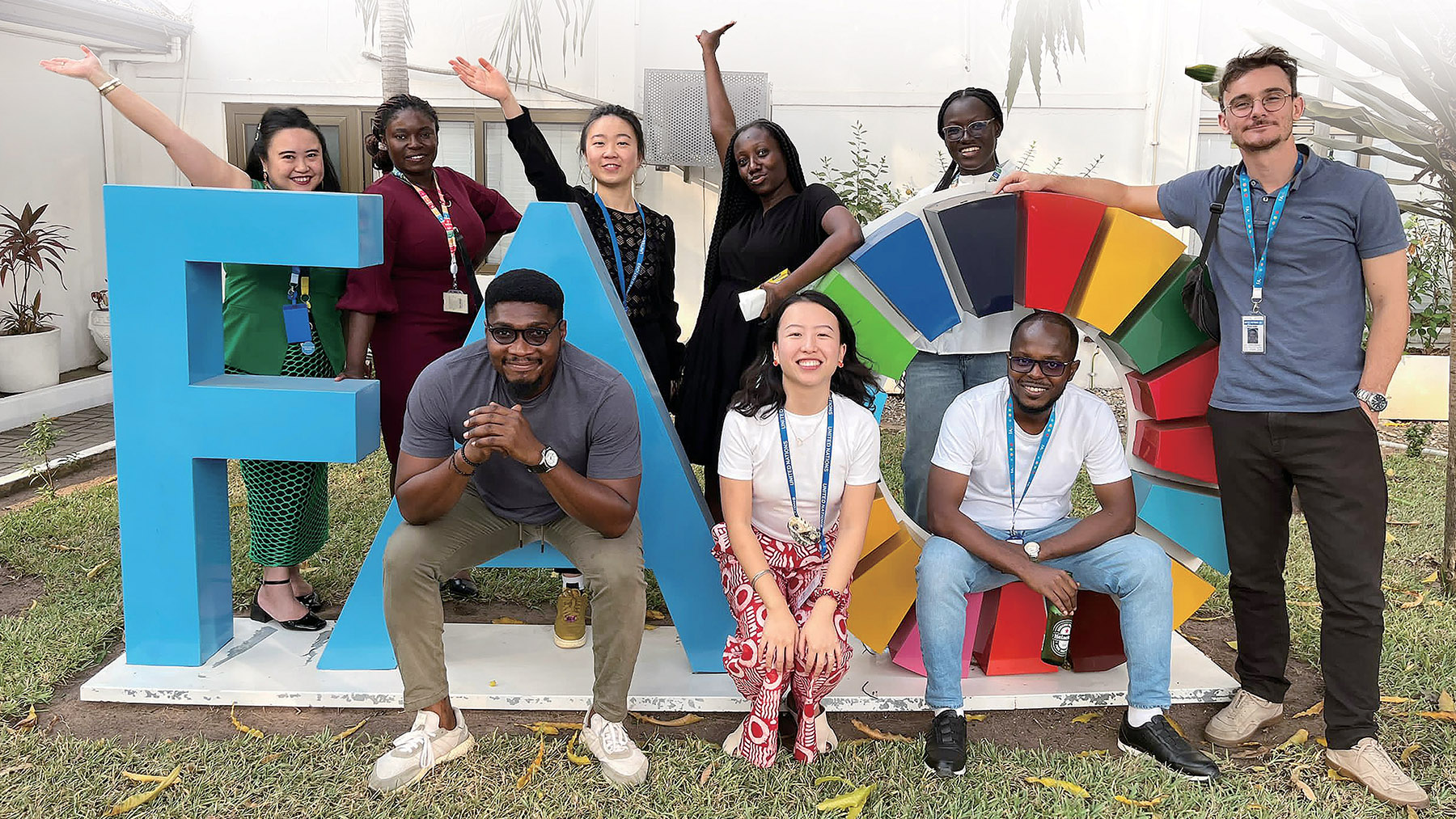Students at Shanghai Jiao Tong University gain global experience through United Nations internships, bridging Chinese wisdom with international impact.

Born in a village and raised in a small city in Jiangxi, Tang Yingjin, 25, has always wanted to see the wider world. Now a business administration student at Shanghai Jiao Tong University (SJTU), he has explored metropolises like Shanghai, Beijing, and Guangzhou — but he wanted more.
"This has become a bit of an obsession for me," said Tang. "I've constantly sought out bigger platforms and opportunities, hoping to stand on an international stage and see the world from a broader perspective."
Last month, his dream came true when he began an internship at the International Telecommunications Union in Geneva, Switzerland.
As part of a 12-person team, he works alongside colleagues from Poland, Lebanon, Indonesia, and beyond.
READ MORE: Youth drive change at Movers Camp
"Geneva is a small city, but it's home to many international organizations and has a truly global vibe. Walking down the street, you can see people of all different skin colors and hear various languages," Tang said. "It's a place where you can feel a strong cultural collision, but it's also where I've experienced a lot of kindness, which has helped break down preconceived notions or biases I may have had."
Tang is one of more than 60 SJTU students who have participated in United Nations internships across 15 countries since 2024. These students, heading to nations like France, Kenya, and Jordan, form a unique cohort of young diplomats blending Chinese wisdom with a global vision.
For 25-year-old Zou Liyao, a landscape architecture student at SJTU, his internship at the United Nations Development Programme Representative Office in Beijing has been a chance to connect his passion for design with broader social goals.
"Landscape architecture isn't just about design — it's about improving living conditions and enhancing social equity," he explained. "This aligns with the UN's concept of 'Leaving No One Behind'."
Zou believes that China has many valuable experiences in urban and environmental management that can be shared with the world, particularly in the Global South.
"For example, China has made significant advancements in flood management, such as building water conservancy projects and improving early climate warning systems," he said. "These experiences can serve as important references for countries like Laos, Myanmar, and Bangladesh, which are heavily affected by the monsoon climate."
Many nations are already actively learning from China. Wu Wei, a 26-year-old PhD student from the School of Marxism, has been interning at the UN University Institute on Comparative Regional Integration Studies in Belgium for two months. She has noticed that in her team's meetings, China's practical experiences are frequently referenced — even in projects unrelated to China.
"Every time I hear others acknowledge China's accomplishments, I feel a deep sense of pride," she said. "In moments like these, simply being in the room as someone from China feels meaningful."
Real-world impact
Wu's research has long centered on China's contributions to global governance, but it wasn't until her internship at the UN that she truly realized how these theoretical ideas could translate into real-world solutions.
"At school, I constantly felt that what I wrote was abstract and groundless, but here, the problems are concrete, specific, and real," she said. "The work we do here is always solution-oriented, which has allowed me to see the practical applications of my research."
The work of Zhang Chaoyue, a 25-year-old graduate specializing in journalism and communication, is also solution-oriented.
Since early February, Zhang has been interning at the Office of the UN High Commissioner for Refugees (UNHCR) in Ecuador. His primary role is to document the organization's community activities through photos and videos, giving him a close-up view of how the UNHCR helps train refugees in new skills so they can adapt to society and earn a living independently.
This work reminded Zhang of China's own poverty alleviation efforts in his hometown of Qingyang, Henan province, where the government trains residents in skills such as sewing, livestock raising, and baking — empowering them to lift themselves out of poverty.
He reflected on the differences between China's approach and that of the UNHCR. "The UNHCR has to rely on companies for investment or assistance, but in China, no one is left behind," he said. "I can see the advantages of China's system in a way I hadn't before."
ALSO READ: Young innovators take center stage
Feng Jiaqi, 22, an undergraduate from the School of Foreign Languages, has also been working to support the underprivileged. Since October, she has been interning with the UN's Food and Agriculture Organization in Accra, Ghana.
Feng works with the gender and communication group, organizing workshops and training programs for local women entrepreneurs. These programs help women learn how to start or expand their businesses, secure financial support, grow their distribution networks, and overcome gender-related prejudices.
This work reflects Feng's passion for making a positive impact on marginalized communities.
"What attracts me most to international organizations is knowing that I'm not working for self-interest, but for a greater good — to help others improve their lives," she said.


